News
Read reaction of Nigerians to N30m fees in Lagos school
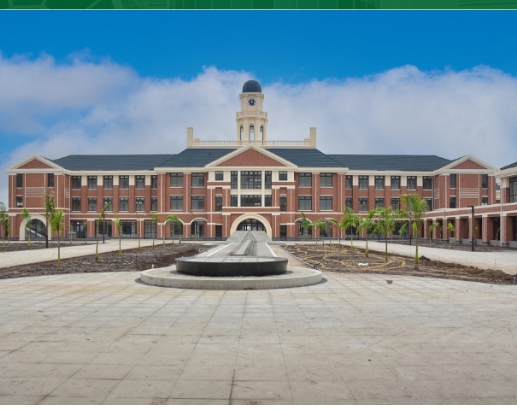
By Kayode Sanni-Arewa
Charterhouse, a British independent school located in the Lekki area of Lagos State, has once again sparked controversy over its fees, drawing criticism from Nigerians on social media.
According to its website, the Charterhouse Family of Schools has been a leading name in British education for over 400 years. The Lagos campus, the first African branch of Charterhouse UK, admitted its first set of students in September 2024, catering to Year 1 through Year 6 pupils.
The school previously faced criticism in April 2024 for its tuition fees, which were reportedly as high as N42 million per year, alongside a N2 million non-refundable registration fee. This sparked widespread backlash, with many questioning the affordability of the institution for the average Nigerian family.
The debate resurfaced on Thursday following a video shared on X.com by user #itzbasito, captioned, “This is what the inside of the most expensive school in Lagos looks like. It costs N42 million per year.”
The video, attributed to Charterhouse, however, claimed that tuition and accommodation cost less than N30 million. The post has since garnered over 9,200 interactions on X.com, with many Nigerians criticising the costs, stating that even N30 million is excessively high.
One user, #TheWaleOrire, tweeted on Friday, “If the government can’t regulate school fees in primary and secondary schools, how can we achieve standardised universal basic education? There’s absolutely no reason why any secondary school in Nigeria should be charging N42 million per year.”
He added, “This only widens the gap between the lower, middle, and upper classes, turning education into a luxury for the rich instead of a right for every child. We need urgent reforms to bridge this inequality.”
Other users echoed similar sentiments, arguing that the fees primarily catered to the wealthy elite.
#OAAdeniji wrote, “There is no way anyone in Nigeria, earning in Naira, will be paying N42 million per year for a secondary school student, no matter what they are being taught. This is more than outrageous.”
Another user, #toofighting, remarked, “You’d find that the students are mostly children of expatriates, and those fees are paid by the companies their parents work for. Most Nigerian parents cannot pay that sum out of pocket.”
Similarly, #rusticfunmi commented, “N42 million per annum just so some people can feel superior that their children will be taught by whites… sorry, ‘expatriates.’”
In contrast, some users defended the school, arguing that it caters to a specific segment of society.
#Arsenicscot tweeted, “They don’t have the majority as their market target. All these una complain na for una pocket. When admission commences, the school will be filled; it won’t be scanty. The owners of the school know the segment of the population they are targeting. They won’t beg for students.”
Another user, #Treazyblaq, added, “If they can afford it, why not? These schools offer more than just education; they’re valuable for networking and building connections that can benefit the future. It’s an investment, not just in education but in opportunities and overall growth.”
The video also detailed the school’s boarding arrangements, stating that students would share rooms with three others, each having their own bed and private space. This sparked additional criticism, with some questioning the value provided.
#SandraAdaeze4 commented, “N30 million a year only to share a room with four other students.” Similarly, #citiii added, “For that amount, there is no reason why each student shouldn’t have their own room or, at worst, two per room.”
Charterhouse’s website details its tiered fee structure for founding students, with tuition ranging from N16.1 million for Years 1–2 to N24 million for Year 9. Weekly boarding costs an additional N5 million, while full boarding is N7 million per year.
PUNCH reported in August 2024 that the Founding Head and Director of Education at Charterhouse, John Todd, clarified misinformation regarding the school’s fees.
He said, “In April, there was an online reaction to our school fees, which sparked a lot of discussion, with some people reacting to the figure of N42m. I want to set the record straight: our fees are currently N26m, not N42m. We’ve never charged N42m.”
The Punch
News
Lawmaker Slams NBA Over Rivers Crisis, Demands Return of N300m

News
BREAKING: Unknown gunmen reportedly storm Senator Natasha’s family residence
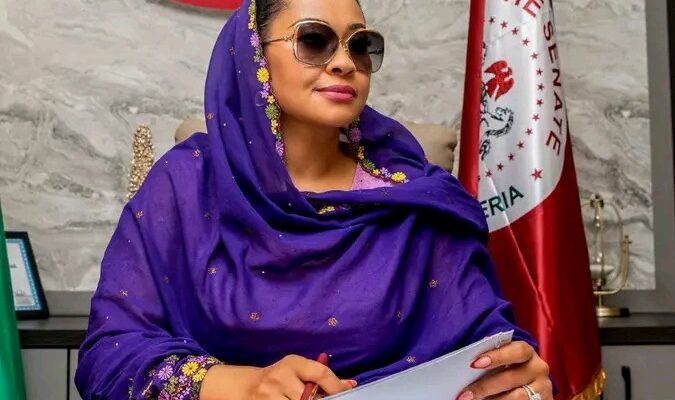
Senator Natasha Akpoti-Uduaghan’s family residence in Kogi was reportedy invaded by gunmen around 1 a.m. on Tuesday, April 16, leaving damaged windows but no injuries.
The incident happened at her hometown residence in Obeiba-Ihima, located in Okehi Local Government Area of Kogi State.
Sources familiar with the event said the attackers arrived around 1:00 a.m. Armed with cutlasses and guns, they damaged parts of the building, smashing windows and causing panic in the area. At least three men were involved in the attack.
Senator Natasha’s Chief Security Officer, Yakubu Ovanja, quickly informed the appropriate security agencies.
In response, officers from the Okehi Police Division rushed to the scene.
Although nobody was hurt and no suspects have been arrested yet, security officials recorded the extent of the damage and launched a preliminary investigation.
The reason behind the attack is still unknown, and as of now, Senator Akpoti-Uduaghan has not released any official statement. She represents Kogi Central in the Senate and is known as a vocal figure in Nigerian politics.
According to Zagazola Makama, police are still trying to figure out what motivated the attackers and are working to find those responsible.
News
SAD! Again, Alleged Herdsmen Attack Three Benue Communities

The communities came under simultaneous attacks just a day after the killing of 11 persons at Otobi Community also in Otukpo LGA.
Benue has in the past decade experienced incessant attacks.
Suspected herdsmen have again stepped up violent attacks as no fewer than three communities in the Otukpo Local Government Area (LGA) of Benue State were attacked on Wednesday.
The communities affected during the fresh attacks include Emichi, Odudaje, and Okpamaju all in Otukpo where five persons were killed in February. The communities came under simultaneous attacks just a day after the killing of 11 persons at Otobi Community also in Otukpo LGA.
Local sources confirm that several people may have been feared dead again in the fresh attack.
Wednesday’s attack came hours after Governor Hyacinth Alia confirmed the arrest of three suspected herders in connection with the invasion of Otobi village on Tuesday night.
When contacted, Otukpo LGA Chairman, Maxwell Ogiri, confirmed the attack on the three communities, saying that the attackers stormed the communities at the time when the Commissioner of Police was still at the Ochidoma Palace over the previous day’s attack on Otobi.
He added that three people sustained injury in the attacks on the three communities, leading to women and children abandoning the communities for fear of being killed.
“Only young men were in the communities when the attackers arrived. The prompt response from combined security operatives made the attackers flee and none of them were arrested,” Ogiri stated.
The police spokesperson in the state, Sewuese Anene, was yet to confirm details of the attacks on the three communities.
-
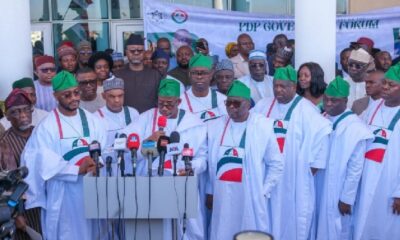
 News24 hours ago
News24 hours agoPDP governors declare support for Tinubu
-

 News2 hours ago
News2 hours agoBREAKING: Unknown gunmen reportedly storm Senator Natasha’s family residence
-

 News24 hours ago
News24 hours agoN1.3trn CBEX Scam: EFCC caution Nigerians against Ponzi Schemes
-

 News5 hours ago
News5 hours agoSnub story on removal of Rivers Sole Administrator, it’s FAKE-Chief Registrar
-

 News10 hours ago
News10 hours ago“How my father escaped assassination” – Bishop Oyedepo’s daughter
-

 News11 hours ago
News11 hours agoFG expresses sympathy for CBEX victims, urges a united effort to combat Ponzi schemes
-
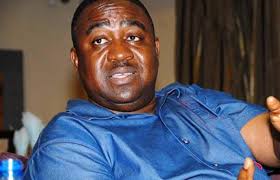
 News23 hours ago
News23 hours agoSuswan kicks as PDP governors reject merger talks
-
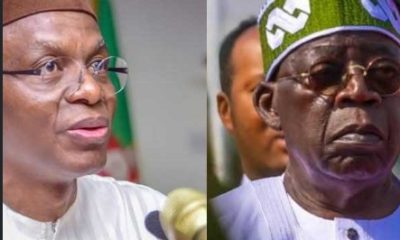
 News17 hours ago
News17 hours agoEl-Rufai labels Tinubu’s government ‘worst in Nigeria’s history’

















